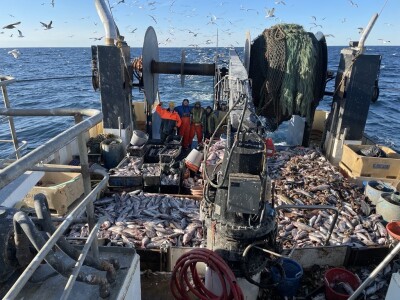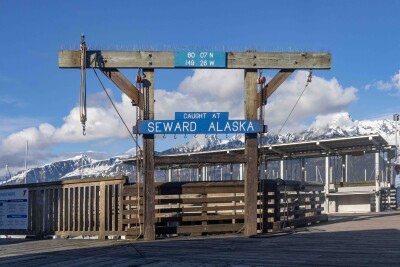Our 'Town'
How often have you heard, "Fishing isn't a living, it's a way of life"?
I've thought that since I was a youngster, daydreaming about fishing, and I think so now, even on a day like today, when Arctic sea smoke is rising off Portland Harbor and it's easy to justify having quit fishing to try something else.
But no matter how much time you spend at sea, it's coming home that makes it worthwhile. Sure, it's nice to get paid, but what's special is being among friends and family in the place you call home.
Maybe that's why fishermen care so passionately about their communities: A fisherman is a bit of a visitor when he's home, and he knows a special place when he gets there.
National Fisherman is committed to fishing communities, and I hope it shows. But a magazine can't demonstrate commitment simply by means of a well-turned phrase; it must devote space to the subject. To that end, we're launching a new column this month, "From the Town Landing," (p. 7).
The column was proposed by Philip Conkling, who is publisher of Working Waterfront and president of the Island Institute in Rockland, Maine, and Anne Hayden, an independent marine policy analyst based in Maine.
Don't make the mistake of thinking this column isn't for you because you don't live in Maine. The issues Mainers wrestle with — diminished resources, fragile ecosystems, stakeholder inequity, loss of infrastructure, high taxes, fishery mismanagement, political polarization, fear for the future — are familiar to fishermen and their communities from Eastport to Adak and beyond.
Hayden and Conkling think about these issues every day. I believe they are committed to expanding our perception of community, emphasis on unity, not only in terms of what a community comprises but also in terms of what it can achieve.
I suspect they'll be provocative, and I look forward to the reading.
* * *
When we were 11 and 12 years old, we would roar out of Perkins Cove in our little outboard-powered skiffs and think nothing of the fact that the fog was like a dungeon. I don't think any of us had a compass, or that any of us cared.
When we were done whatever we were doing — generally, mackerel fishing, dogfishing or just wasting gas — we would follow the swells ashore and then pick our way home.
Later, most of us came to rely on loran C, which had an almost mystic, as far as I'm concerned, ability to put you within a very few feet of any place you wanted to be, as long as you had the numbers.
Loran C eventually was superseded by the GPS, which offers as much accuracy, greater "functionality," as folks like to say today, and almost total reliability.
Loran C is still being maintained, but in January, the Department of Transportation initiated a public comment period to determine whether the loran system should be retired, maintained "as is" or upgraded to an enhanced system that could back up or work in conjunction with GPS.
You have until Feb. 7 — by which time most subscribers will have received this issue — to go on the record by visiting www.navcen.uscg.gov and heading for the upper right-hand portion of the page, where it says "Loran FRN Published."
Proponents of loran C say it is a valuable backup to GPS. GPS is second to none as a navigation system, but there's a case to be made that loran C is critically important to U.S. security, communication and commerce.
So let Uncle Sam know where you stand. Even if what you'd really rather be doing is catching mackerel on a pole in front of whatever harbor it is you call home.
— Jerry Fraser






